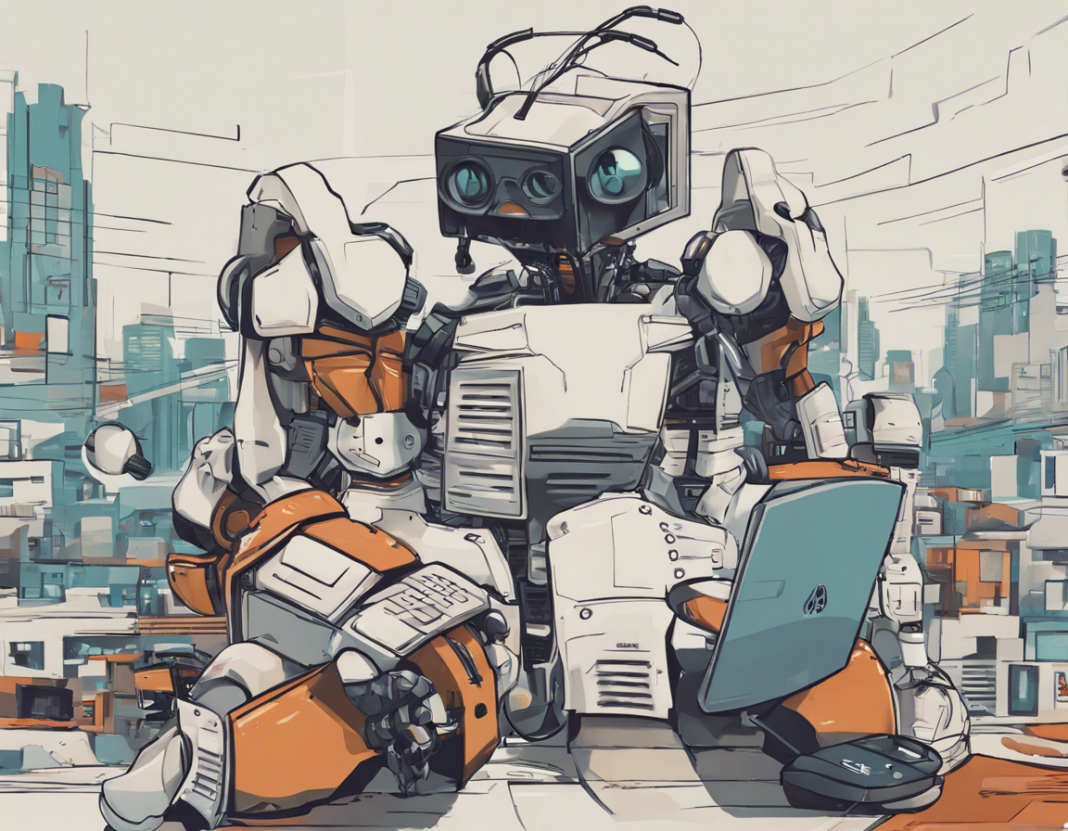Introduction:
In a fast-paced world driven by technology, staying on top of the latest tech trends has become imperative for businesses and individuals alike. From artificial intelligence to blockchain, the tech landscape is constantly evolving, making it crucial to be aware of emerging technologies that could shape the future. In this comprehensive article, we will delve into some of the hottest tech trends of today and how they are reshaping industries and changing the way we live and work.
Artificial Intelligence and Machine Learning:
Artificial Intelligence (AI) and Machine Learning (ML) have been at the forefront of tech innovation in recent years. AI algorithms are revolutionizing industries by automating processes, making decisions, and providing valuable insights from large datasets. ML, a subset of AI, focuses on developing algorithms that can learn and improve over time without explicit programming. Applications of AI and ML range from virtual assistants like Siri and Alexa to predictive analytics used in financial services and healthcare.
Internet of Things (IoT):
The Internet of Things (IoT) is a network of interconnected devices that communicate and exchange data over the internet. IoT technology has enabled smart homes, smart cities, and Industrial IoT (IIoT) applications. From smart thermostats and wearables to connected cars and industrial sensors, IoT devices are transforming how we interact with the physical world and collect valuable data for optimization and automation.
5G Technology:
The rollout of 5G technology promises to revolutionize connectivity with faster speed, lower latency, and higher capacity. 5G networks will enable immersive experiences like augmented reality (AR) and virtual reality (VR), as well as support the proliferation of IoT devices. Industries such as healthcare, autonomous vehicles, and smart cities will benefit from the low latency and high reliability of 5G networks.
Blockchain and Cryptocurrency:
Blockchain technology, known for its decentralized and transparent nature, is most commonly associated with cryptocurrencies like Bitcoin and Ethereum. However, the potential applications of blockchain go far beyond digital currencies. Blockchain can be used for secure transactions, supply chain management, voting systems, and even digital identity verification. The technology’s inherent security features make it a promising solution for industries looking to enhance trust and transparency in their operations.
Cybersecurity and Data Privacy:
With the increasing digitization of data and processes, cybersecurity and data privacy have become major concerns for individuals and organizations. Ransomware attacks, data breaches, and privacy regulations have highlighted the importance of robust cybersecurity measures. Technologies like encryption, biometrics, and AI-driven security tools are being deployed to safeguard sensitive information and mitigate cyber threats.
Augmented Reality and Virtual Reality:
Augmented Reality (AR) and Virtual Reality (VR) technologies are blurring the lines between the physical and digital worlds. AR overlays digital information onto the real world, enhancing user experiences in gaming, retail, and education. VR, on the other hand, immerses users in a simulated environment, providing opportunities for virtual training, entertainment, and communication. As AR and VR technologies advance, their applications across industries continue to expand.
Cloud Computing and Edge Computing:
Cloud computing has revolutionized the way businesses store, process, and access data by leveraging remote servers over the internet. The rise of edge computing complements cloud services by bringing computation closer to the source of data generation. Edge computing reduces latency, saves bandwidth, and enhances real-time processing for applications like IoT, autonomous vehicles, and smart infrastructure.
Robotics and Automation:
Robotics and automation technologies are reshaping industries by streamlining processes, increasing efficiency, and improving safety. Robots are being deployed in manufacturing, healthcare, logistics, and even household chores. Collaborative robots, or cobots, work alongside humans in shared workspaces, while autonomous vehicles and drones are transforming transportation and delivery services.
Conclusion:
As we navigate the ever-evolving tech landscape, embracing these trends and innovations is essential for businesses and individuals aiming to stay ahead in a competitive world. From AI and IoT to blockchain and cybersecurity, the impact of technology on our lives and industries is undeniable. By staying informed and leveraging these technologies effectively, we can harness their potential to drive innovation, efficiency, and growth.
Frequently Asked Questions (FAQs):
- What is the difference between AI and ML?
-
AI refers to the broader concept of machines being able to carry out tasks in a way that we would consider “smart,” while ML is a subset of AI that focuses on developing algorithms that can learn and improve over time without explicit programming.
-
How does IoT impact daily life?
-
IoT devices have revolutionized daily life by enabling smart homes with connected appliances, wearable devices that track health metrics, and even smart cities with optimized infrastructure for energy efficiency and public services.
-
How secure is blockchain technology?
-
Blockchain technology is renowned for its security features, including cryptographic encryption and decentralization, making it extremely difficult for malicious actors to tamper with the data stored on a blockchain network.
-
What are the advantages of 5G technology?
-
5G technology offers faster speeds, lower latency, and higher capacity compared to previous generations, enabling applications like AR, VR, and IoT to function seamlessly and support emerging technologies.
-
How can businesses benefit from cloud computing?
-
Cloud computing allows businesses to scale their operations, access resources on-demand, and reduce infrastructure costs by leveraging remote servers hosted by cloud service providers.
-
What industries are leveraging robotics and automation?
-
Industries such as manufacturing, healthcare, logistics, and agriculture are adopting robotics and automation to improve efficiency, accuracy, and safety in their operations.
-
What role does cybersecurity play in safeguarding data privacy?
- Cybersecurity measures are essential for safeguarding data privacy by protecting sensitive information from cyber threats, ensuring compliance with regulations, and maintaining the trust of customers and stakeholders.
